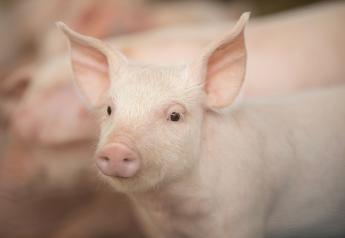Feral Swine Eradication: USDA invests $11.65 Million to Expand Program
Fight Against Feral Swine 011521
An $11.65-million investment by the USDA will help agricultural producers and private landowners trap and control feral swine as part of the Feral Swine Eradication and Control Pilot Program. This new investment will fund 14 projects to expand the pilot program in Alabama, Hawaii, Mississippi, Missouri, North Carolina, Oklahoma, South Carolina and Texas.
This program is a joint effort between USDA’s Natural Resources Conservation Service (NRCS) and USDA’s Animal and Plant Health Inspection Service (APHIS). This second round of funding is for partners to carry out activities as part of the identified pilot projects in select states, USDA said in a release.
“These awards enable landowners to address the threat that feral swine pose to natural resources and agriculture,” NRCS Acting Chief Kevin Norton said. “The projects we have identified will be key to addressing the feral swine problem.”
NRCS will provide funding to partners who will provide financial assistance, education, outreach and trapping assistance to participating landowners in pilot project areas, USDA said. All partner work will be closely coordinated with the APHIS operations in these areas. Between the first and second round of funding, there will be a total of 34 active projects across 12 states for the life of the 2018 Farm Bill. Learn more here.
USDA said new pilot projects and areas were selected in coordination with NRCS state conservationists, APHIS state directors and state technical committees based on areas in greatest need of assistance due to high densities of wild pigs.
The three coordinated components of the projects include feral swine removal by APHIS, restoration efforts supported by NRCS and assistance to producers for feral swine control provided through partnership agreements with non-federal partners. Projects will be completed by the end of September 2023.
More from Farm Journal's PORK:
Western States Unite to Keep Feral Pigs from Crossing U.S.-Canada Border
Can You Really Trap Feral Pigs with Your Cell Phone?
Feral Swine: USDA Monitors World’s Worst Invasive Alien Species
How Colorado Eliminated Feral Hogs
Feral Hog Stomachs Tell Story of Destruction
Montana Puts Plan in Place to Keep Canadian Feral Hogs Out








